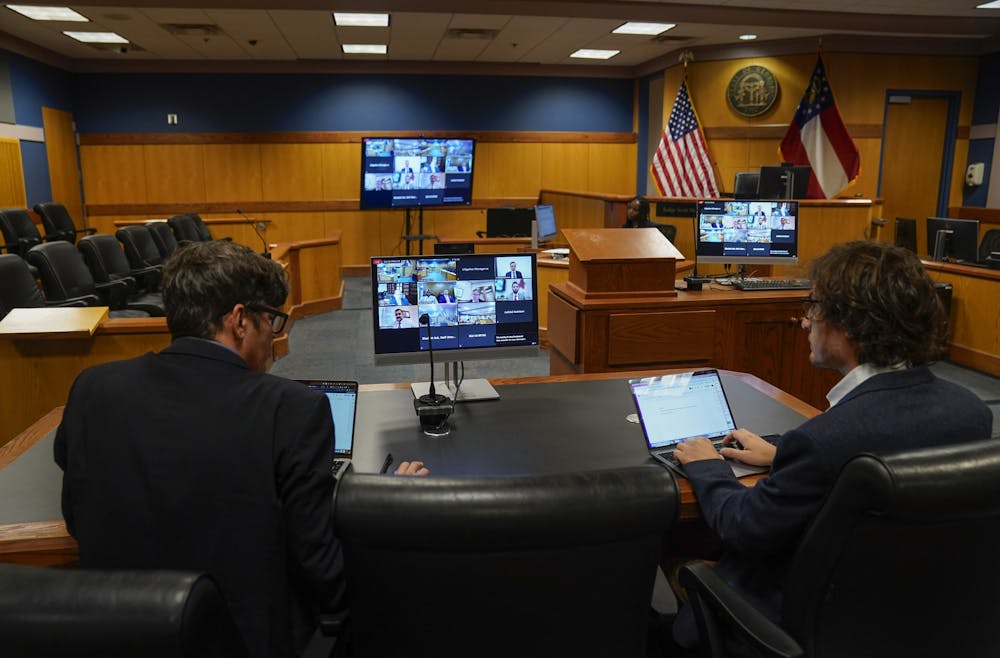Researchers at Indiana University released a report in October showing remote court proceedings improved citizens’ satisfaction with their court hearings.
Victor Quintanilla, IU Maurer School of Law professor and Val Nolan faculty fellow, lead a team surveying litigants involved in court hearings across more than 50 courts in Indiana.
“It is important to talk about right now as we go into the post-pandemic period because courts, supreme courts, court administrators are actively deciding on what the post-pandemic normal is going to be and many are deciding if remote hearings should be on the table,” Quintanilla said.
A summary of the report titled Accelerating Equity and Access to Justice in Courts said the study used a first-of-its-kind experience sampling platform to assess multiple aspects of the court experience including procedural justice, outcome satisfaction, stress and well-being. This was meant to give a voice to unrepresented persons, or people who are not represented by an attorney, after online civil court hearings.
RelatedIndiana Gov. Holcomb appoints entrepreneur Isaac Torres to IU Board of Trustees He will be sworn in during a November board meeting.
The report found unrepresented defendants who accessed court remotely reported higher satisfaction with case outcomes than those who had in person court hearings, with a higher likelihood of reaching agreement. In addition, it found that the gaps in procedural justice that occurred in in-person hearings narrowed in remote proceedings.
“This report shows that theses remote hearing options can be really valuable and beneficial for ordinary, unrepresented persons, especially those who are unrepresented defendants, and especially those who find themselves being required to go to court while juggling their hectic, busy lives,” Quintanilla said.
When attending court in person, unrepresented plaintiffs and defendants reported different levels of convenience. While both groups of litigants reported higher and comparable levels of convenience when attending court remotely, these convenience gains were especially pronounced for unrepresented defendants.
For individuals who need to work all the hours they can, Quintanilla said the extra option of being able to come in remotely rather than taking the day off work is crucial. The ability to attend a hearing online can also decrease the stress in the court experience. Further, he said this option can allow them to have a better experience and voice their concerns and needs in court more effectively.
In its findings, the report showed litigants encountered structural barriers, such as child care and transportation, on a more frequent basis when attending court in-person. However, there are still structural barriers in online hearings — 10% of people experienced technical issues during online hearings, according to the report.
“[The study] emphasizes the importance of continuing to listen and learn from the experiences of these litigants to guide innovation and people-centered design within the civil justice system in the United States and more broadly,” a summary of the report said.
RelatedPresident Whitten presents 2030 strategic plan progress at State of the University Address Whitten announced multiple initiatives to advance the University.




